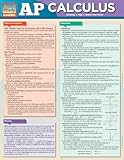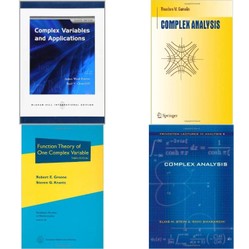A limit is simple to understand, it is the value a function gets arbitrarily close to at a specified value of the independent variable. It is not necessary that the function be defined at that value, so I will not call it a domain value of the function.
Translating to English from math, if a graph of a function through a point would exist, then the function’s value, f(x), that makes the graph continuous through that point is its limit as the x value of the point is approached. We literally ignore what the function does at the x-value that is being approached.
For a continuous function the limit at a value is simply found by evaluating the function at that value. For continuous functions it is acceptable to discuss the limit at a domain value.
The limit for a function with a hole in the domain, such as a hole caused by a division by zero, can still exist if the function would be continuous if the hole in function’s graph were to be filled in. This also works even if there is a functional value that does not fill in the hole. Simply use the value as the limit that would make the function continuous.












 Multivariable Calculus: Gradient, Divergence, and Curlon 12/19/2025
Multivariable Calculus: Gradient, Divergence, and Curlon 12/19/2025
 UAPs, Formerly UFOs, If They Are Real How Can We Explain Their Arrival to Earth?on 12/18/2025
UAPs, Formerly UFOs, If They Are Real How Can We Explain Their Arrival to Earth?on 12/18/2025
 Polar Coordinate Systemon 12/16/2025
Polar Coordinate Systemon 12/16/2025
 Aurora Can Disrupt Electrical Devices And Even the Grid?on 12/15/2025
Aurora Can Disrupt Electrical Devices And Even the Grid?on 12/15/2025


Comments
Thank you for your comment below in answer to my previous observation and question.
The two kinds of calculus books both interest me, what with my social-science background and what with my business and life-science experiences.
The free-books option is most interesting too and therefore much appreciated!
If you are looking for a calculus book there are two kinds. One is calculus, the other is calculus for business and life science majors. The second is in many cases light on theory and does not reach such topics as line and surface integrals, or even finding volumes. It covers a single three hour course, and does not even have trig functions. It does a good job on covering the basics. As for cost, free is possible using an online textbook. I am familiar with OpenStax, a division of Rice University, that is a collection of free textbooks. I believe a grant might have been used to pay for the writing, but that is a guess. Colleges are going to free books. A nominal fee is charged to get the ability to print one, perhaps as low as a few dollars, and you use your paper and ink. They have free books in many areas of study, check them out.
Thank you for your comment below in answer to my previous observation and question.
Some self-instructees, such as myself, appreciate the non-digital, old-fashioned self-learning through appropriate books.
Is there such a thing as a one-stop calculus book (to serve not as replacement or supplement but as reinforcement and review along with your video series)?
All. I do not limit the potential audience.
Thank you for your comment below in answer to my previous observation and question.
Those learning, reviewing or stumbling over geometry undoubtedly count among those going to go through your math videos as they get released!
Is the geometry video going to be for distance-learners, home-schoolers and self-instructees?
Yes, I probably will have some videos on geometry as well. There certainly must be a discussion on similar triangles before getting into trig.
Thank you for your comment below in answer to my previous observation and question.
Algebra, trigonometry and probability sound most welcome.
Would there be a demand or a need for geometry?
I plan to add algebra, many videos are already done, trig which is also started, probability, also started. and plan to cover most freshmen and sophomore college math, as well as physics. Since the Calculus and physics are the most popular, I am working there right now, but do occasionally handle random college math courses. The articles are to come out when enough related material on related topics make writing a long enough article to publish. I am getting ready to add derivatives.
Thank you for your comment below in answer to my previous observation and question.
Making videos is so proactive (Best of good luck ;-D), timeless and timely.
The calculus videos must be quite a boon for those who muster distance-learning with many other students or self-instructing.
What would be the other math branches that would be upcomingly released?
I intend them to assist any student that needs the help. I get to the point and try to make them understandable. Often math is not clearly explained by some professors, so there is a need.
Making videos is my new endeavor. I have others, but I am going to collect groups of related videos and embed them in articles. I also have been revising old articles to include my videos, including other branches of math, physics videos, and even others on Mardi Gras.
My hope is to get channel subscribers, which is needed before I can earn from my videos.
I appreciate the comment.